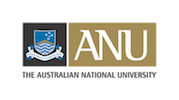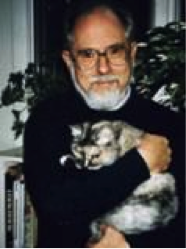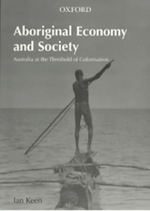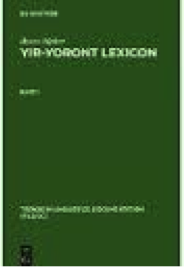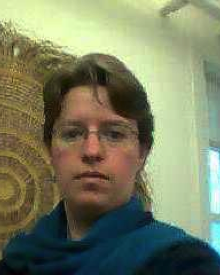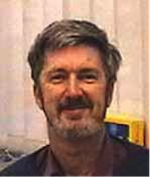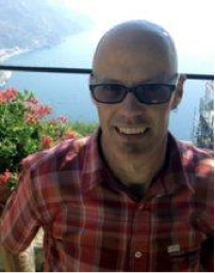
|
Dr
Patrick McConvell (The
Australian National University) is the Chief Investigator on the
AustKin project and holder of a Discovery Outstanding Research Award.
He received his PhD from the University of London’s School of Oriental
and African Studies. He has taught anthropology and linguistics at
Australian universities, trained Indigenous people in working with
their own languages and helped establish Aboriginal language centres
and bilingual education programs. He was R. Marika Guest Professor,
University of Cologne in 2012. |
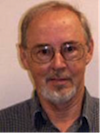 |
Dr
Harold Koch (The Australian
National University) completed a doctorate on comparative
Indo-European linguistics at Harvard in 1973 before
commencing several decades of research into Kaytetye
and the other Arandic languages of Central Australia. He is co-editor
with Dr Rachel Nordlinger of The Languages and Linguistics of
Australia: A Comprehensive Guide (De Gruyter Mouton, 2014) as well as
Australian languages: classification and the comparative method (John
Benjamins, Amsterdam, 2004) with Associate Professor Claire Bowern and
Aboriginal placenames: Naming and re-naming the Australian landscape
(ANU E Press and Aboriginal History, 2009) with Luise Hercus. His
research interests include comparing languages and reconstructing their
prehistory as well as gleaning information on languages from old
written sources. |
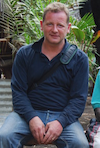 |
Professor
Laurent Dousset
(EHESS – Ecole des Hautes Etudes en
Sciences Sociales, CREDO) is an anthropologist working since 1994 on Australian
Aboriginal cultures, he is particularly interested in kinship, social
organisation and social transformations, as well as conceptions and
issues of land tenure and inter-cultural relationships. He wrote the
Austkin program, database system and the
information schema, as well as contributed to the public website
design. Since 2008 he is also working in Vanuatu on political organization and change.
He has published or edited seven books (among them Australian Aboriginal Kinship:
An introductory handbook with particular emphasis on the Western Desert.
Marseille: pacific-credo Publications, 2011) and numerous papers in scientific journals.
He is also the creator of the digital archival framework ODSAS. |
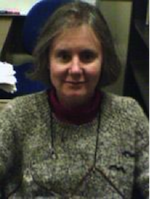 |
Professor
Jane Simpson (The
Australian National University) is Chair of Indigenous
Linguistics at The Australian National University, and Deputy Director
of the ARC Centre of Excellence for the Dynamics of
Language. She works on Australian Aboriginal
languages, especially syntax and semantics, but also place-names,
dictionaries, land-claims, kinship systems, and reconstructing what
languages were like from old written sources. She is
currently working on a longitudinal study of Aboriginal children
learning their first language. Other projects include work on
intercultural communication, and Australian English lexicons. |
 |
Jeanie
Bell (Batchelor Institute
of Indigenous Tertiary Education) is a language custodian, long
time community linguist, language activist and educator who has lived
and worked in Queensland, Victoria and the Northern Territory. She is a
Senior Lecturer in the Centre for Australian Languages and Linguistics
at Batchelor Institute of Indigenous Tertiary Education. Jeanie gained
an MA in Linguistics from the University of Melbourne for her thesis A
sketch grammar of the Badjala language of Gari (Fraser Island) and has
done work on reviving Badjala, a variety of the Gabi-Gabi language of
southeastern Queensland. |
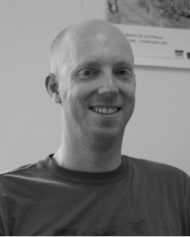 |
Dr
Piers Kelly (The Australian
National University) was project manager and research assistant
on the AustKin project from 2013 to mid-2014. His own research
encompasses linguistic creativity, writing systems, folk literacy
practices and Philippine languages. |
|
Meghan
McGrath (Indiana
University) is a digital cultural heritage consultant and
folklorist from Chicago. Meghan contributed in the
website design, consulting widely with language owners, linguists,
teachers and Native Title researchers. |
|
Dr
Rachel Hendery (University of
Western Sydney) is coeditor of Grammatical Change: Theory and
Description and author of Relative Clauses in Time and Space: A Case
Study in the Methods of Diachronic Typology. |
